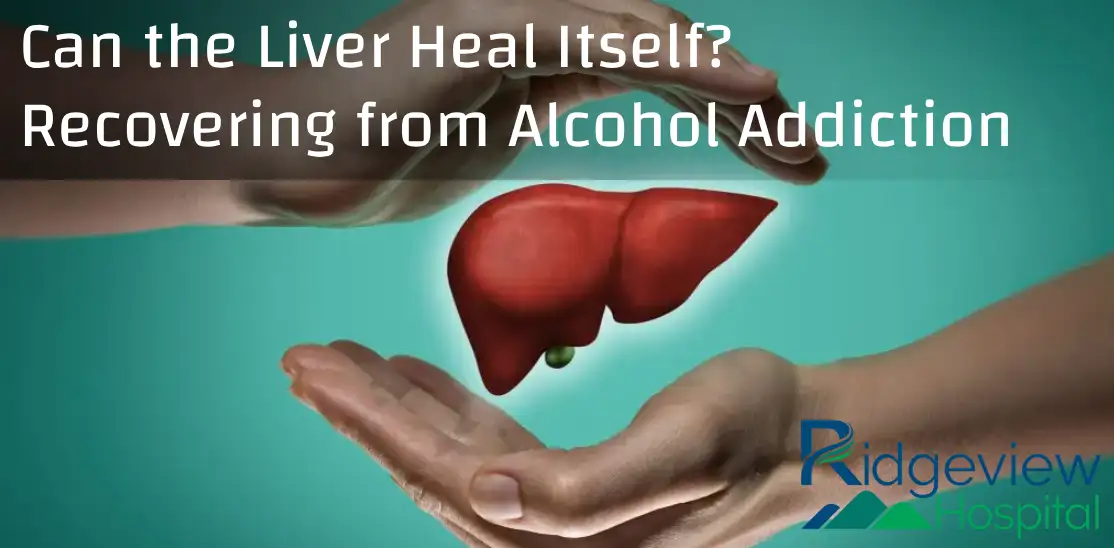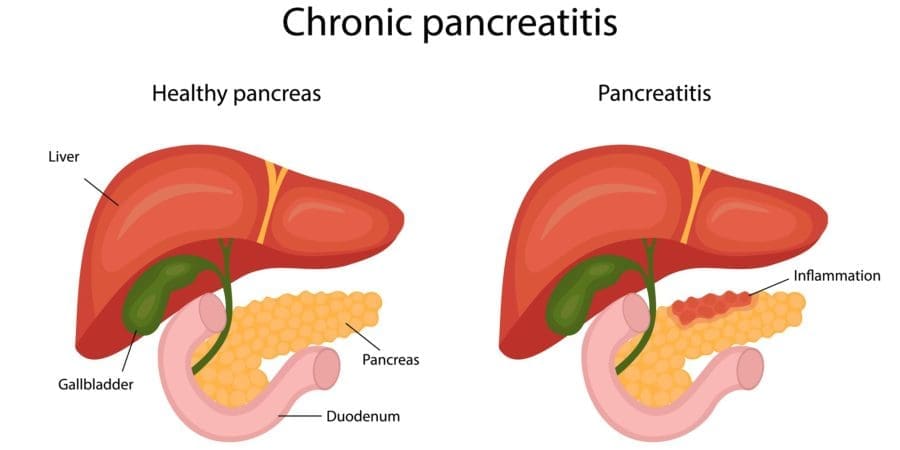You might be familiar with the fact that drinking alcohol can cause many different health complications, including liver damage. However, the liver functions differently from other organs in the human body. Rather than developing scar tissue right away when it is damaged, the liver works to reverse the damage to a certain extent. This leaves many people wondering: Can the liver heal itself?
To get the answer to this question, we must take a look at how the liver works, the alcohol effects on liver health, and what to look for in cases of severe liver damage caused by alcohol use.

Alcoholic Liver Diseases
A typical, functioning liver works to keep your body running smoothly in a number of ways. The organ breaks down, or metabolizes, fat and carbohydrates to create energy as well as balance your blood sugar levels. Your liver also takes on the important task of filtering toxins, such as alcohol, from your blood.
But what happens when there is too much alcohol in your blood to properly be broken down by the liver? What happens when the liver gets overwhelmed by these harmful chemicals and starts to lose its function? Can the liver heal itself once it is damaged?
It’s true that the liver has properties that allow it to replace its own unhealthy cells with those that help it to function again. However, liver recovery can only happen if you give it the opportunity to heal. This means one thing: no drinking.
Liver damage from alcohol is a common issue for people who struggle with addiction because the damage continues to worsen the more that alcohol is introduced into their systems. There are a few different types of alcoholic liver disease, including:
- Alcoholic fatty liver disease—A build-up of too many fats in the liver
- Alcoholic hepatitis—Life-threatening inflammation of the liver cells. Alcoholic hepatitis is one of the leading causes of liver-related deaths
- Alcohol-related cirrhosis—The presence of dead scar tissue where there should be living cells. This prevents the liver from regenerating fully and can significantly lower your life expectancy
If you worry that you might be causing harm to your liver because of the amount of alcohol you drink, you might have an alcohol use disorder that requires professional treatment so that you and your liver can begin to heal.
Look Out for Sluggish Liver Symptoms
The symptoms for all of the alcoholic liver diseases listed above vary widely and can easily go unnoticed until it is too late. Being aware of sluggish liver symptoms can help you to identify when your liver has stopped functioning or healing itself from excessive alcohol use. Common symptoms of alcoholic liver disease are:
- Fatigue
- Changes in your appetite
- Stomach pain
- Nausea and vomiting
- Weight loss
- Brain fog
- Jaundice
- Swelling in the legs
- Unusual bleeding and bruising
Though some of these symptoms come from the early stages of liver disease, all of the signs of a non-functioning liver can actually indicate something more severe. Alcoholic liver disease can greatly impact your ability to have a normal life and, for too many people who struggle with addiction, lead to the loss of life.
How to Repair Your Liver
The simple answer to the question “Can the liver heal itself?” is yes, but on one condition: that you remove alcohol from your system entirely. This means finding treatment for addiction and any co-occurring mental health issues that could increase your chances of turning to alcohol once again.
Addiction treatment should begin with safe and supervised detox. This is particularly important if your liver has already been impacted by alcohol use. Making the decision to stop drinking is important but it needs to be done carefully and with medical support so that you do not suffer from serious withdrawal symptoms.
Detox is where your liver truly begins to heal and this process only continues throughout the rest of your time in treatment. Treatment gives you the opportunity to find physical, emotional, and behavioral renewal. As your liver regenerates, so do the other parts of you.
In treatment, you will learn valuable life skills to take with you once you return home so that you can keep yourself healthy. Furthermore, you will find recovery through a variety of treatment options, such as:
- Music therapy
- Recreational therapy
- Individual counseling
- Group therapy
- The 12-step program
- Relapse prevention





















